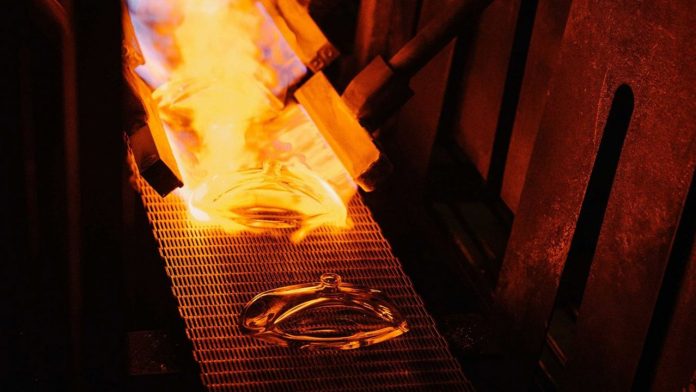Posted Sep 30, 2022 1:22 PM
When gas suffocates German industry. Hero when the Germans played “hamsters” by storing toilet paper at the start of the Covid, the Hakle company filed for bankruptcy in September. “Energy costs have driven us into bankruptcy,” commented company director Volker Jung.
Paper, glass, metallurgy, chemicals… the rise in prices would have led nearly one in ten companies to reduce or even interrupt its production across the Rhine, notes the federation of industry (BDI). The chemical sector, one of the most penalized, has already reduced its production by 8% and the fertilizer sector has even closed 70% of its capacity.
ArcelorMittal shut down in Hamburg and Bremen
The steel industry also shut down its furnaces. At the beginning of the month, ArcelorMittal announced the closure of its blast furnaces in Bremen, “from September and until further notice” and in Hamburg “from the fourth quarter”. “Partial unemployment is also already applied in Duisburg and Eisenhüttenstadt”, specifies the company.
In total, nearly 8% of German steel production would be shut down. The sector “consumes 2.1 billion m3 of natural gas per year, which roughly corresponds to the needs of the population of Berlin and Munich combined”, recalls its federation. However, “companies have exhausted most of their savings potential”.
Down the production chain, 10% of car companies have reduced production and 30% are preparing for it, according to a survey by the automobile federation, VDA. “SMEs in the automotive sector are in water up to their necks,” warns Arndt G. Kirchhoff, owner of the automotive subcontractor Kirchhoff and vice-president of VDA.
Weakened glassmakers
The glassmakers are also sounding the alarm. “Energy prices have sometimes increased by 600% in one year, yet they represent between 15 and 20% of operating costs”, indicates the German Glass Federation. “We normally pay between 40 and 50 million euros for our energy each year,” confirms Carletta Heinz, who runs the eponymous family business in Thuringia. At the current rate, the bill will reach 260 million this year”. A company that exports 80% of its production cannot pass on this increase to its customers without losing competitiveness.
Above all, the glass sector, which represents 7,000 jobs in Thuringia, is reluctant to project itself into the future. Heinz froze a 40 million investment in a new tank using “green” energy. However, such investments are made over ten years.
“Only” 15% of jobs affected
The specialist in industrial economics at Ifo, Oliver Falck, however, relativizes the threat of deindustrialization that many fear. According to him, energy prices will not stay at their current stratospheric levels forever. “The energy crisis only reinforces the competitive disadvantage already suffered by energy-intensive players,” he adds.
These players, which consume 76% of industry’s energy needs, also focus on five sectors (chemicals, metallurgy, glass, paper, as well as oil refining and coking). In 2020, they represented only 21% of the gross added value of the industry and 15% of its jobs according to the Federal Statistics Office.
Their plans to relocate to regions where energy is cheaper would therefore only partially threaten German prosperity. The country retains its technology and parts produced abroad could be assembled across the Rhine, judge Oliver Falck. Provided that business confidence, essential to growth, recovers.
The morale of companies and that of exporters indeed fell in September, reaching according to Ifo polls their lowest level since May 2020, during the first wave of Covid. For Rainer Dulger, President of the German Employers Federation (BDA), only a cap on gas prices could breathe some hope into the industry. The coalition has just mobilized 200 billion euros for this purpose.













